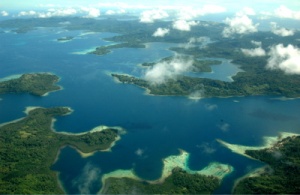
Welcome Solomon Islands!

We are very pleased to welcome the Solomon Islands’ Ministry of Environment, Climate Change, Disaster Management and Meteorology to AELERT.
The Ministry is the first Australasian agency outside of New Zealand and Australia to join AELERT, strengthening the network’s connectivity within the region.
The AELERT Steering Committee expressed their pleasure that the network’s reputation is attracting broader Australasian involvement, and their desire to collaborate further on cross-jurisdictional matters.
“The environment that we regulate doesn’t conform neatly to geographic boundaries, making it critical that we connect and collaborate with our colleagues in neighbouring countries,” said Tony Circelli, AELERT Chair.
“Therefore it’s a wonderful and promising occasion to welcome the Solomon Islands to the AELERT family and, speaking for the entire network, I look forward to hearing about the Ministry’s regulatory processes, goals and challenges.
Jointly Sisiolo, Principal Conservation Officer at the Ministry, says that AELERT’s mission to facilitate the effective enforcement of environmental legislation is vital to the Solomon Islands’ economy, biodiversity and people.
“80-90% of Solomon Islanders live in a rural village setting, and directly depend on environmental resources for their survival and financial livelihood, such as fish stocks and forest resources,” Jointly said.
“So it’s really important to enforce our environmental legislation and policy, which allows us to responsibly balance economic requirements with environmental protection, resource conservation and social benefits.”
Jointly also hopes that the Ministry’s involvement with AELERT will facilitate collaboration on transboundary regulatory matters.
“Solomon Islands shares responsibility with Australia and New Zealand for several transboundary species, including whales, dolphins and fish stocks, in addition to pollutants and invasive species,” he said.
“Collaborating through AELERT will further the enforcement of our domestic and international laws that protect and regulate these species.”

